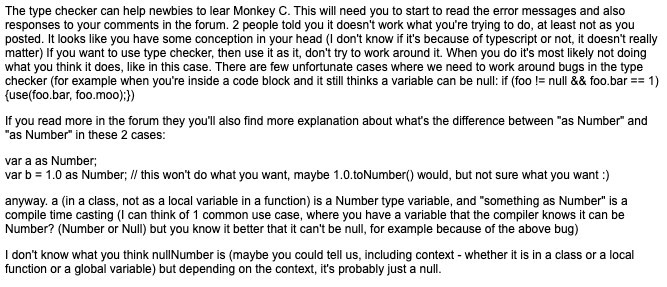Why is this an error:
I get the following error message:
Attempting to perform operation 'sub' with invalid types 'Null' and '$.Toybox.Lang.Number'.
workoutStartTime is not null when the minus operation is executed
info.timerTime is not null as per the initial test in this expression, otherwise we would not execute the minus operation.
I have more examples where the operation x != null ? true-statement : false-statement does not seem to understand that x is not null if the true-statement is executed.
I am using project.typecheck = 2



